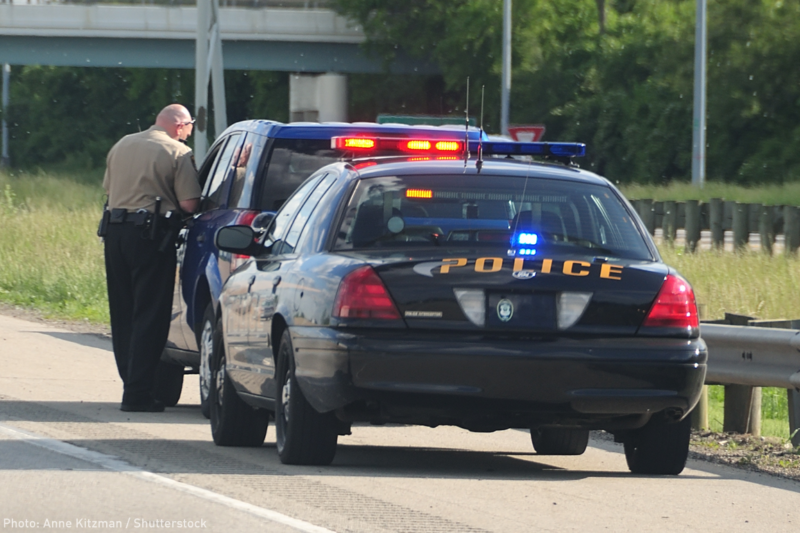The House Could Soon Give Jeff Sessions $50 Million to Wage the War on Drugs


While the House was busy passing the divisive “empty gesture” known as the Protect and Serve Act during Police Week, the Senate took up a bill that Attorney General Jeff Sessions as “the centerpiece of our crime reduction strategy.” This bill, which the Senate unanimously and the House could take up in the next two weeks, authorizes the Project Safe Neighborhoods grant program. This program more federal dollars and resources for “a nationwide law enforcement program focused on the reduction of violent crime.”
has been around since 2001, and in that time, about $2 billion has been spent encouraging federal-local around “reducing gun violence in the United States.” Some of those partnerships, like , have been characterized as holistic, using a law enforcement and social services approach to reduce violence. Others, like , have been described as punitive and exclusively enforcement focused.
In the almost two decades that PSN has been around, it has received little fanfare or question. PSN has been overwhelmingly supported by past administrations and congresses, but this continued rubber-stamping must end, especially with this attorney general, who is focused on worse.
“The war on crime and drugs did not fail. It was roaring success,” Sessions has said. So why is a Congress focused on reform fueling ?
Without a hearing or opportunity to amend the in the Senate Judiciary Committee, which has jurisdiction over the bill, the Senate quietly the legislation. But this bill is no “empty gesture” for law enforcement. It gives over two years for what is being coined as "violence reduction," with funding for enforcement against “identified subsets of individuals or organizations responsible for increasing violence in a particular geographic area.”
And the big winner in all of this is Sessions, who has very specific plans for what the “centerpiece” of his “law and order” agenda will do. He also has a of violent crime and its causes, which range from marijuana use to immigration status. According to Sessions, “U.S. Attorneys [will] a crime plan from the bottom up.” They will “ prosecutions of the most violent people in the most violent areas." And U.S. attorneys exercising their “prosecutorial responsibilities to enforce our immigration law” will on the PSN “centerpiece.” Sessions law enforcement, “My goal is to … unleash you.”
But what exactly is Sessions unleashing law enforcement for? Is it for crime statistics? Sessions a spike in violent crime in recent years even though statisticians at the Department of Justice have found “” in violent crime rates. Or is it because of the myth of the “ACLU effect?” Sessions’ that “crime [goes] up” when you tell officers to follow the Constitution (he calls it “let[ting] the ACLU run the police department’) is based on a study with findings.
Whatever the reason, some jurisdictions, like Memphis and Richmond, are rightfully concerned about what a Sessions’ Project Safe Neighborhood program will mean for their cities. Ed Chung at the Center for American Progress because the program allows "the federal government [to direct] communities as to how they should spend millions of dollars over which they previously had local control." Local advocates would rather see the federal government in “jobs and economic viability of our neighborhoods.” And there is that “arresting your way to lower crime has negative collateral effects.”
Before the authorization of Project Safe Neighborhood lands on the president’s desk, the Congress must seriously consider this $50 million dollar check it's giving Jeff Session that he will make out to the war on drugs. And jurisdictions across the country must be vigilant about PSN coming to their town. If cities don’t want to be complicit in Session’s boom for mass incarceration, they must push back.


